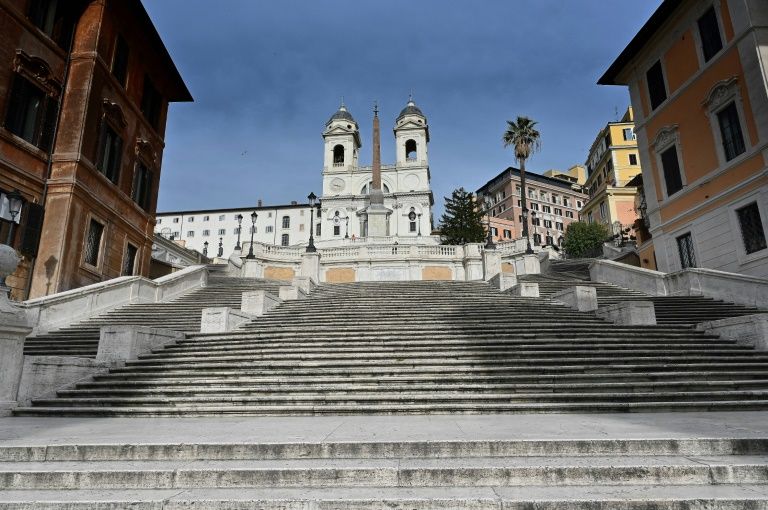Less than one day after the Diocese of Rome issued a decree to close all churches to the public, the vicar general revised the decree Friday saying he will leave this decision to the discretion of parish priests.
“Every ecclesial precautionary measure must take into account not only the common good of civil society, but also of that unique and precious good which is faith, especially that of the least ones,” Cardinal Angelo De Donatis, vicar general of Rome, wrote in the revision issued today.
The vicar general explained that banning access to all churches in the diocese for three weeks could create “a greater sense of insecurity” among Catholics during this time of crisis.
The decree “is therefore modified, placing the ultimate responsibility of entering the places of worship in the hands of priests and all the faithful, so as not to expose the population to any danger of contagion and at the same time avoid the sign of a physical prohibition on access to a place of worship by closing it, which could create disorientation and a greater sense of insecurity,” Cardinal De Donatis wrote.
The vicar general exhorted Catholics to follow the Italian government’s quarantine measures until April 3, and to stay at home.
He also provided a dispensation freeing Catholics from their Sunday obligation to attend Mass. The previous Diocese of Rome decree suspending all public Masses in the diocese until April 3 still stands, however now Catholics will once again have access to some parishes for private prayer.
The Diocese of Rome clarified that “non-parish churches” and other religious buildings will remain closed, while parishes and missionary churches dedicated to care for others can be reopened. The properties of religious communities and monasteries are only accessible to the members of their communities.
Monsignor Giuseppe Tonello, chancellor of the Diocese of Rome, signed the March 13 decree revision along with the vicar general.
Since March 9 public Masses in Rome have been canceled throughout the diocese, but churches had remained open for personal prayer, and some had held Eucharistic adoration or confession.
There are 172 confirmed cases of COVID-19 currently in Lazio, the region surrounding Rome, as of March 12, according to the Italian Ministry of Health.
On March 11, Italy’s Prime Minister Giuseppe Conte tightened the restrictions of a nationwide lockdown to include the closure of all restaurants, bars, and non-commercial businesses other than supermarkets.
Coronavirus cases in Italy have grown quickly in recent weeks surpassing 15,000 documented cases. More than 1,000 people have died from COVID-19 in the country since Feb. 22.
A nationwide quarantine has been declared in Italy through April 3 in order to slow the spread of the coronavirus pandemic.
The quarantine restricts movement within Italy and requires people to stay in their homes except for cases of absolute necessity, which may include going to work, to the pharmacy or hospital, or to the supermarket.
In all cases, a distance of one meter must be maintained between people in public. Not following these regulations is punishable by fine or arrest.
“We can stem this tragic eventuality only by applying measures to curb the infection and allowing the [National Health Service] to regroup,” De Donatis said.

